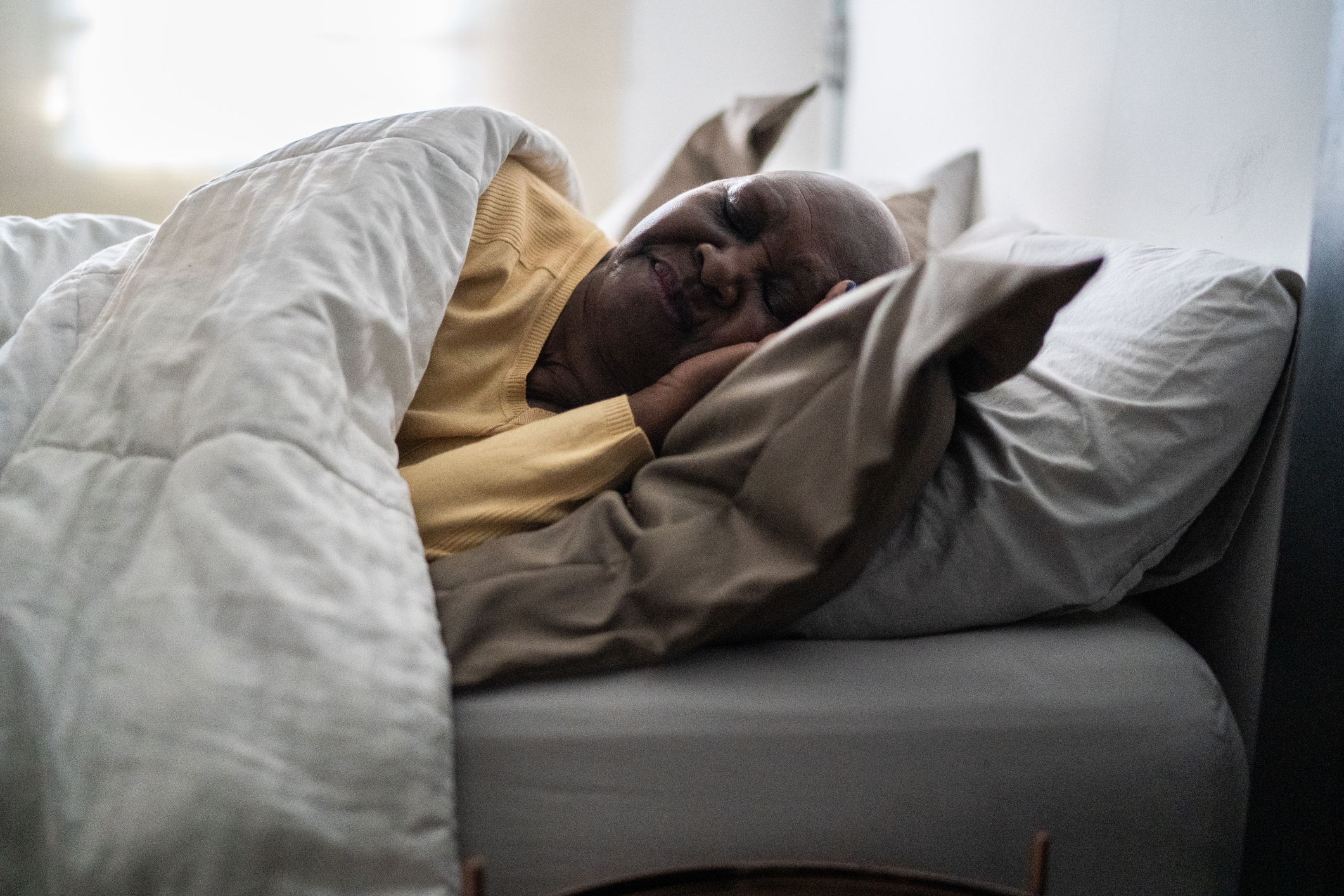Snoring and insomnia can be more than a simple nuisance. Individuals with sleep apnea stop breathing during sleep. Their oxygen levels drop dangerously low. Untreated sleep apnea can lead to severe and sometimes life-threatening complications. By managing the risk factors associated with sleep disorders, sleep apnea treatment gives people more quality sleep and fewer health problems from breathing issues.
There are two types of sleep apnea. Obstructive sleep apnea, the more common type, occurs when the airway is blocked during sleep. Older adults can be more prone to these obstructions as the muscles in the tongue and the roof of the mouth weaken. Body type and family history play roles in the condition. So does excess body fat, which compresses the airways, making it more difficult for the airway to stay open while sleeping.
Blacks and Hispanics are more prone to this form of sleep apnea, though the reasons have not been thoroughly established. Other risk factors include being male, thyroid disorders, swelling of the face and neck due to kidney or heart failure, having large tonsils, smoking and alcohol consumption.
In central sleep apnea, the brain and the muscles that coordinate breathing do not communicate properly, and the body cannot regulate breathing during sleep. Certain drugs suppress the breathing centers of the brain and can cause central sleep apnea. These include opioid pain medications, drugs for anxiety and depression, seizure medications and muscle relaxants.
Effects of Untreated Sleep Apnea
Because older adults often do not sleep soundly, they may assume their sleeplessness is normal. But uncontrolled sleep apnea affects more than their sleep quality:
- Daytime sleepiness and fatigue: The poor sleep quality of sleep apnea can make one feel drowsy during the day. This can lead to making errors at work, difficulty concentrating and falling asleep at inappropriate times, such as while driving a car.
- Heart health: Sleep apnea causes the body to release stress hormones, which put extra strain on the heart. Stress hormones elevate blood pressure, increasing the heart’s workload. Over time, persistent high blood pressure can lead to stroke and heart attack. Lack of oxygen during apneic episodes may also lead to an irregular heartbeat and cardiac arrest.
- Mental health: Poor sleep can cause irritability and depression. For those who already have depression, insomnia related to sleep apnea can worsen their condition.
- Difficulty managing diabetes: When a person stops breathing, the body does not exhale carbon dioxide, or CO2. Increased CO2 leads to insulin resistance. The body will not respond to insulin as it should, and blood sugars will rise.
- Complications during and after surgery: General anesthesia and recovery from anesthesia are riskier for those with sleep apnea.
- Disturbed sleep for the partner: A spouse or significant other often has trouble sleeping due to their partner’s snoring and frequent nighttime awakenings. Some couples may sleep in separate rooms so at least one partner can receive quality sleep.
Managing Your Sleep Apnea Risk Factors
The first step to preventing the widespread effects of any sleep disorder is to address the underlying causes. Some risk factors for sleep apnea, such as age and genetics, cannot be controlled. However, making healthy lifestyle changes can lessen sleep apnea risk.
Losing weight, quitting smoking and avoiding alcohol (especially before bedtime) will improve sleep and minimize sleep apnea disturbances. Treating underlying medical conditions that can worsen sleep apnea, such as heart failure, kidney disease and thyroid imbalances, can reduce swelling and pressure on the airways.
Devices to Treat Sleep Apnea
Individuals with mild or moderate obstructive sleep apnea may be able to use oral appliances that look like an athlete’s mouth guard, to help keep the airway open while they sleep. However, more severe cases require continuous positive airway pressure, or CPAP therapy. CPAP machines deliver constant pressure to the airways via a face mask.
Many patients find CPAP machines uncomfortable. If the discomfort is intolerable, the provider may suggest a different type of mask, add humidification to the machine or adjust the machine’s settings to alleviate the issue.
Anyone who suspects they may have sleep apnea should see their doctor and receive a proper diagnosis. Treatment gives people more restful nights and prevents many long-term consequences of uncontrolled sleep apnea.
Y0149_0003650




